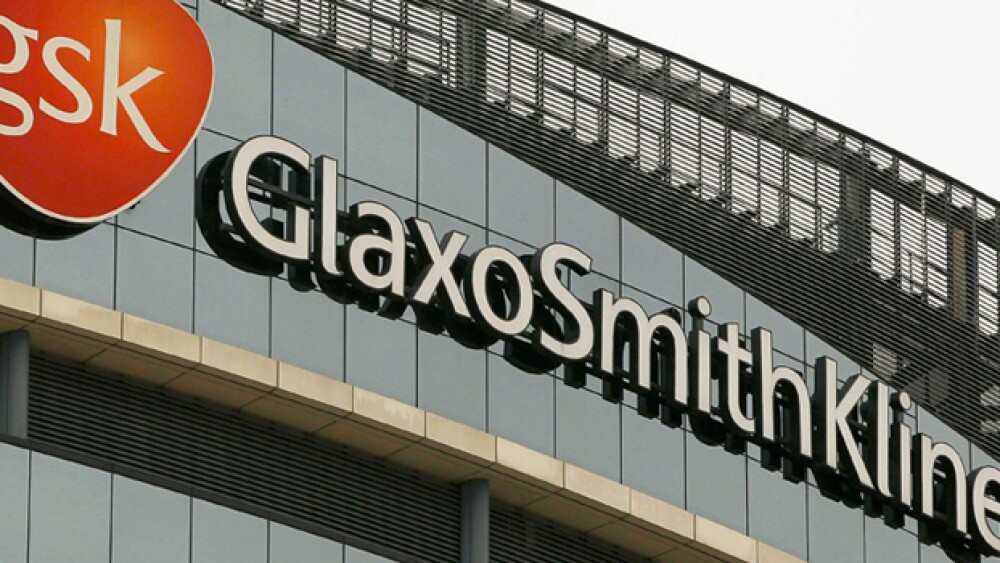This weekend GSK unveiled long-term data that showed that one-third of patients treated with Nucala (mepolizumab) experienced no asthma-related exacerbations during the study.
GlaxoSmithKline continues to tout the benefits of its severe asthma treatment Nucala. This weekend the company unveiled long-term data that showed that one-third of patients treated with Nucala (mepolizumab) experienced no asthma-related exacerbations during the study.
That’s pretty remarkable considering patients who entered the COLUMBA study came in with a history of experiencing an average of two exacerbations per year. The open-label study treated patients with severe eosinophilic asthma, a form of the inflammatory disease that is linked to higher-than-normal eosinophils (a type of white blood cell) being present in the blood. Over-production of the blood cells can cause inflammation in vital organs and tissues, sometimes permanently damaging them. The study showed consistent reductions in exacerbations and improvements in asthma control, the company said in a statement released over the weekend.
The COLUMBA follows on the heels of a March 2018 study that showed patients who switched to Nucala from Novartis’ Xolair experienced greater control of their severe asthma conditions.
Data from the COLUMBA study showed that patients treated with Nucala, an anti-IL5 biologic therapy, experienced a 61 percent decrease in exacerbation rate, from an average of 1.74 events per year at enrolment to .68 events per year during the treatment period. Nucala is believed to work by preventing the ‘IL-5’ cytokine from binding to its receptor on the surface of the eosinophil cells, which in turn reduces eosinophil levels.
Nucala was initially approved in 2015 by the U.S. Food and Drug Administration to treat patients age 12 years and older with severe asthma with an eosinophilic phenotype. Since its approval it’s been prescribed to more than 18,000 people in the United States. Sales of Nucala grew 76 percent overall during the first quarter of 2018, including 40 percent growth in the U.S. Nucala generated $144 million during the quarter.
By the fourth week of the study, patients saw a 78 percent reduction in their high white blood cell counts. The reduction of the eosinophils was sustained until the end of the study, GSK said. Patients also experienced improvement in asthma control from the first assessed week and maintained for four years, according to the GSK data. The study reports data from patients who were on mepolizumab treatment for an average of 3.5 years and a maximum of 4.5 years.
“These new data give us evidence that Nucala, a targeted biologic treatment, provides an enduring benefit to patients with severe eosinophilic asthma. The findings show the sustained exacerbation reduction and asthma control delivered by this medicine over a substantial length of time, with no new safety findings,” Dave Allen, head of Respiratory Therapy Area R&D, said in a statement.
In addition to the strong efficacy, GSK said safety and immunogenicity profiles of long-term Nucala treatment observed in the COLUMBA study are similar to that seen in prior severe asthma studies.
The COLUMBA study was designed to investigate the safety and efficacy of Nucala in patients with severe eosinophilic asthma who participated in the 12-month DREAM study, a Phase III trial that finished in 2014. The 347 participants in the COLUMBA study received 100 mg subcutaneous doses of Nucala every four weeks in addition to standard care for an average of 3.5 years. Data from the COLUMBA study was presented at the ongoing American Thoracic Society conference in San Diego.
“People with severe eosinophilic asthma for whom control has not been possible with inhaled or oral therapy have always sought options to improve control. We know this may be achieved with biologic therapy and are excited to see the long-term effectiveness of the anti-IL-5 therapy, Nucala, balanced with a long-term safety profile, Sumita Khatri, Associate Professor of Medicine at Cleveland Clinic and the Principal Investigator in the COLUMBA study said in a statement.





